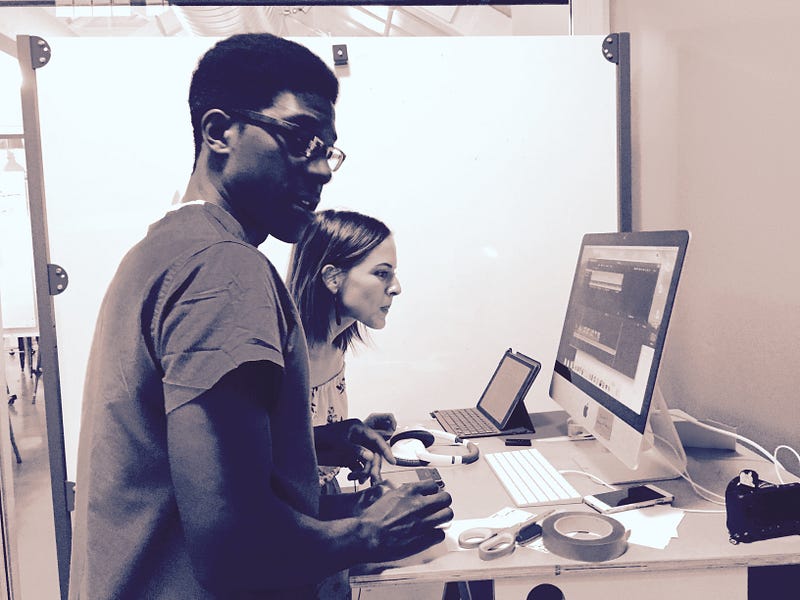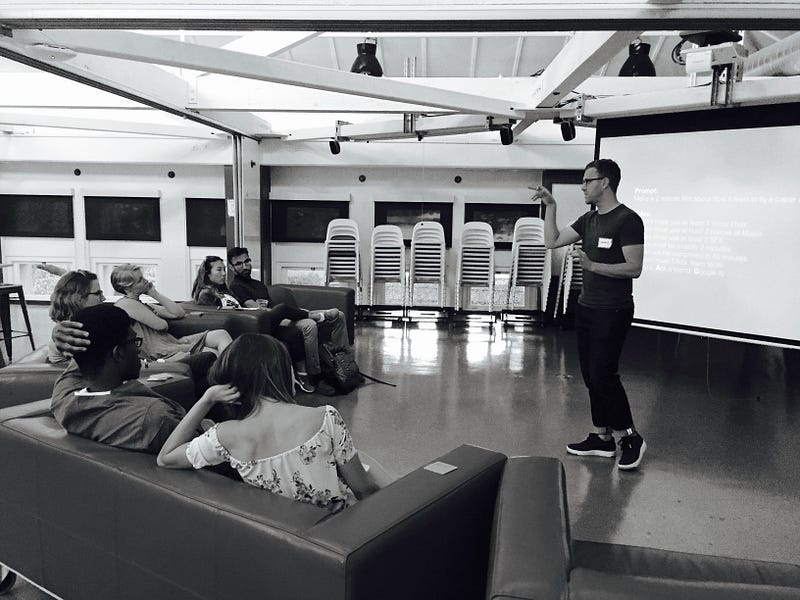I’m co-teaching a course this summer at Stanford’s d. School with Dr. Henry Lee, Hamsika Chandrasekar and Seamus Harte called “Gaining Patient Perspectives On Disease.” We have called the class “The Empathy Project” on this website.
Dr. Lee was awarded a grant by the Stanford Medical School to pursue an experimental course that uses storytelling as an innovative method to teach medical students empathy. Students are participating in a group project to tell the story of a patient through a 5-minute video.


So far, we have taught two student groups and have received valuable feedback about the curriculum we designed. Students seem to enjoy the opportunity to closely shadow and interview a patient in their own environment, only complaining that there is not enough time to thoroughly learn the technical skills and execute the final story at the level they had hoped. That said, last week was the last class of the second group this summer, and their videos and take-aways were very impressive. We plan on screening many of the videos students have created in September ’16 at the Medical School. We are going to assess the success of this class at the end of the summer based on the student surveys. We aim to understand if the course may be a valuable addition to the medical school curriculum for 1st or 2nd year students.
A student from our first class session wrote this to me post-class:
“I’ve been thinking a lot about empathy during the past week or so. As the nation reels from police brutality and the violent response that brutality has engendered, I wonder about the importance of our “moral tribes” in determining who we deem worthy of our empathy and who is left out. Your statement about empathy requiring effort is directly linked to the notion of moral tribalism, I think. Our better natures need much priming in order to be made manifest. Call it a bug of human psychology.”
This notion of who we deem worthy of our empathy, and who is left out, is a recurring theme in Leslie Jamison’s book, The Empathy Exams, which I recently finished reading in parallel with co-teaching this course. The Empathy Exams is collection of essays. The Devil’s Bait, one of these essays,HarpersMagazine-2013–09–0084566 was particularly poignant in this vein, as it points out issues with cultivating empathy for diseases that are not recognized by the medical community. Morgellons disease — the name derived from a passing reference by the 17th-century physician Sir Thomas Browne — appeared to the professional gaze an impure emanation of Google-borne hypochondria. To journalists too: before long it seemed every enterprising US feature writer was poring itchily over online accounts of symptoms and the struggle for acceptance. Morgellons was a template instance of medical anxiety in the internet age.(1)
The Empathy Exams is an example of exceptional articulation, Jamison concluding that empathy is a matter of the hardest work, “made of exertion, that dowdier cousin of impulse”. We’d all like to think that we are born with attributes that make us “naturally empathetic,” but I would argue along with Jamison that to become truly empathetic, it takes the hard work of being present in moments where many people would rather turn an uncomfortable blind eye.
Last weekend I saw the play Sell/Buy/Date, by Tony Award-Winer Sarah Jones, which exemplifies how theatrical productions can heighten our capacity to empathize with others.

Jones explores the difficult topics of human trafficking and the sex industry. Jones conjures several characters in her one-woman show. The characters examine how people of the future may interpret modern attitudes towards gender, sexuality, and sex work. Although the characters might be criticized for their stereotypical portrayal, I felt that through her carefully crafted impersonations, I had a glimpse of each person’s motivations, fears, or general attitude about sex workers, and the industry that surrounds this profession. We see the effects of this industry not only on the people providing the services, but through the eyes of the consumers, who seem even more lost than the people who have supposedly “fallen into” the job due to some sort of unfortunate life circumstance. I judge the success of this play by looking around at the riveted faces of the audience. There is a level of empathy we feel from every which way, the pimp, the prostitute, the customers, the larger industry commercializing sex as a commodity, like sugar, but with a disgusting saccharin aftertaste.
Sarah Jone’s play can be seen as an entertaining and thought-provoking way to educate people about a difficult topic. By revealing the absurdity and sadness surrounding the sex industry through humor, I see a pathway for teaching empathy on any subject in a less intimidating way. Wrapped in a bow called “entertainment” we can reach even those who prefer not to look.
References:
- https://www.theguardian.com/books/2014/may/30/empathy-exams-leslie-jamison-review
